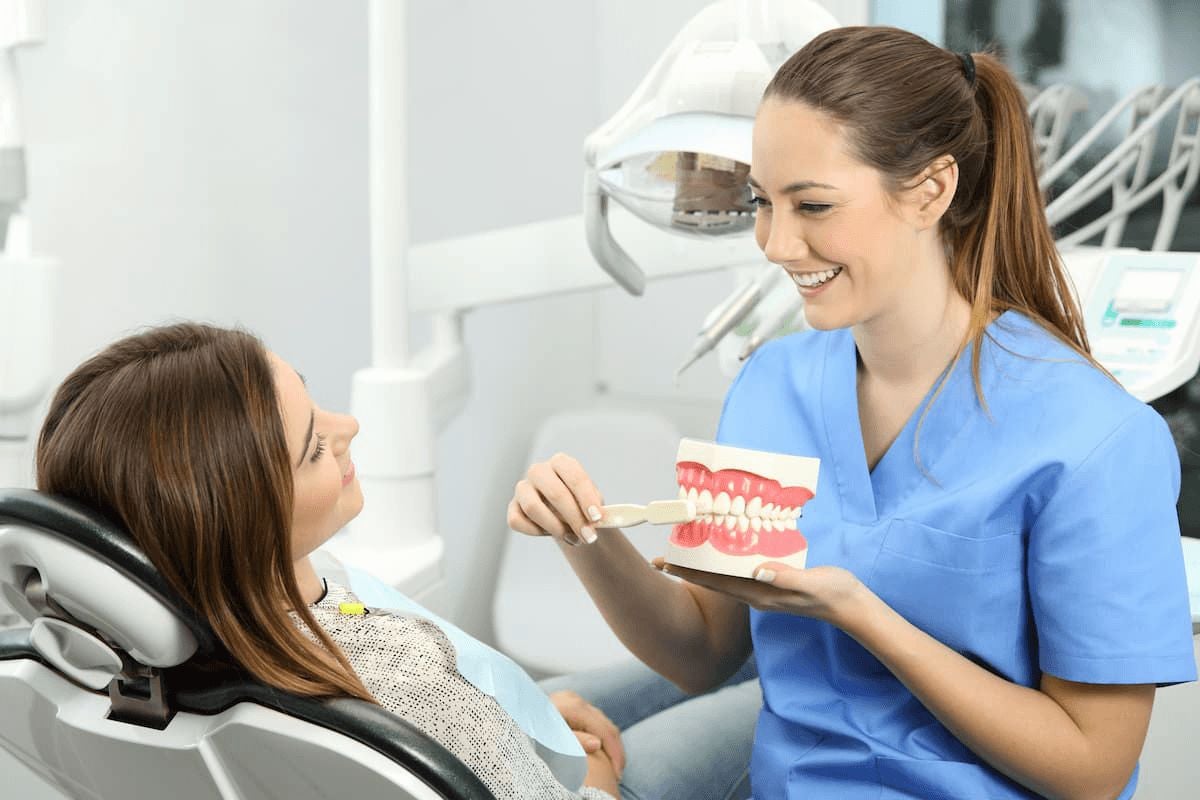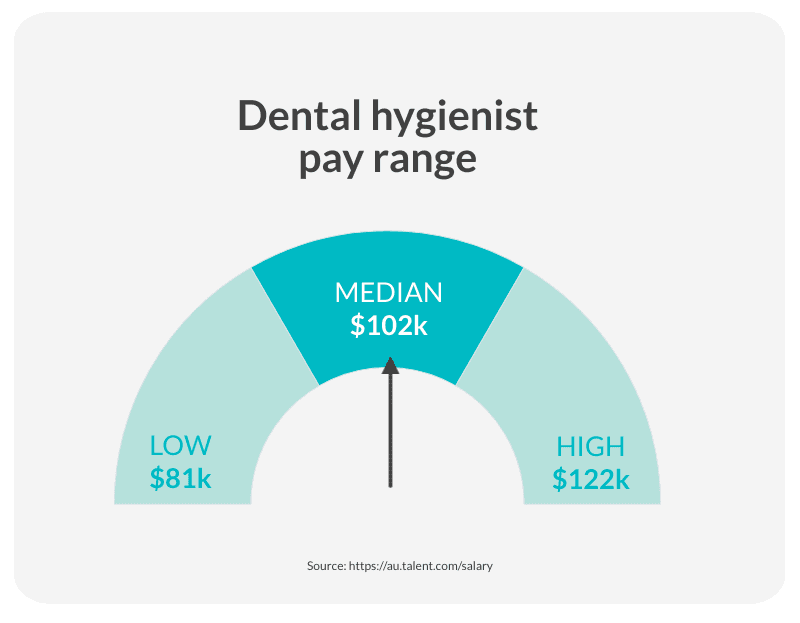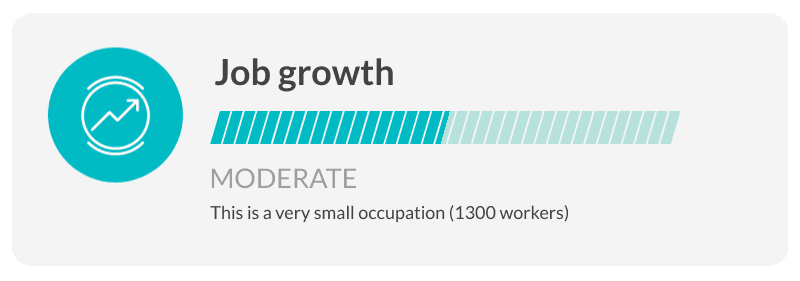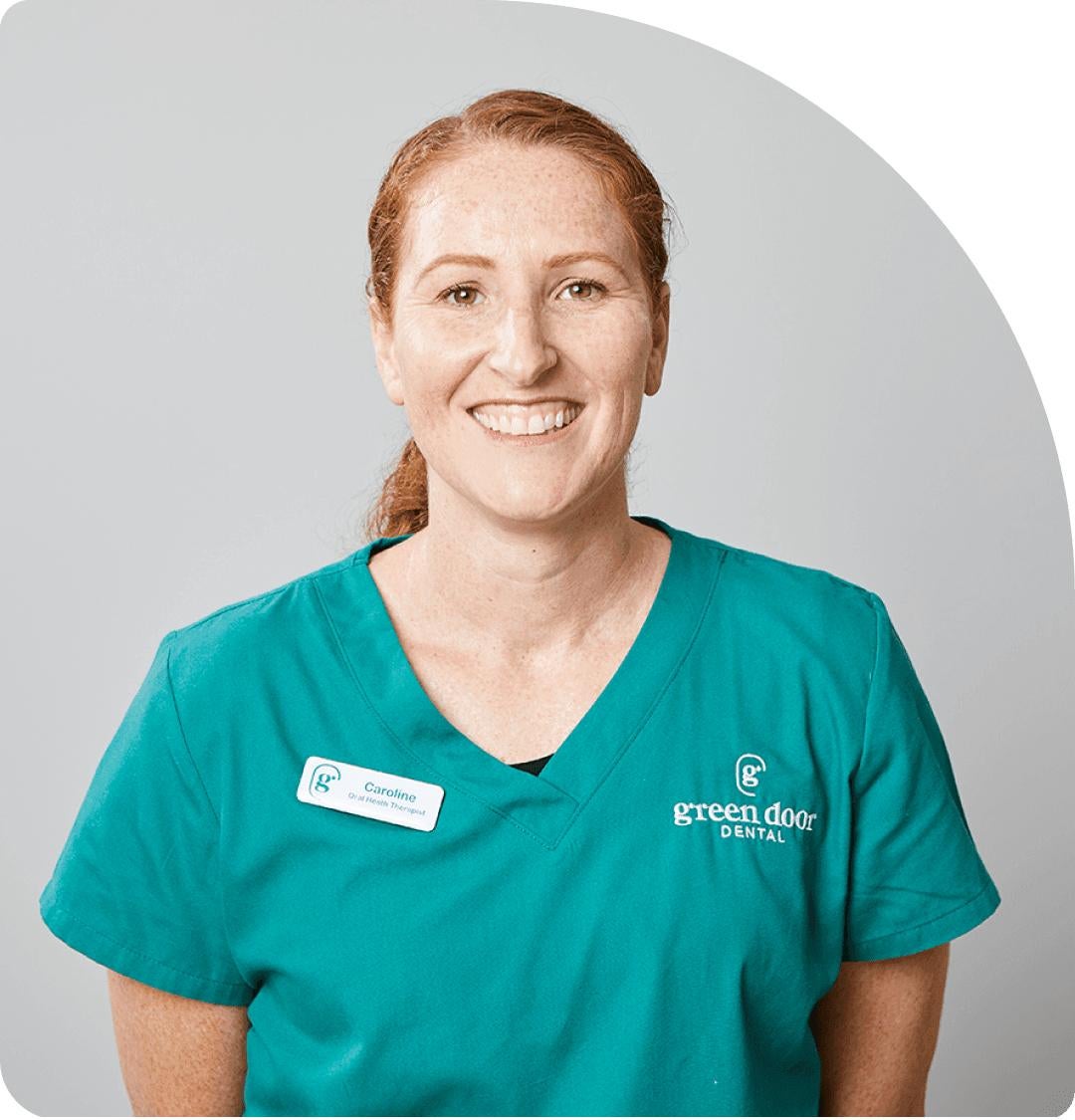How to Become a Dental Hygienist in Australia

Dental hygienists take care of people’s health by looking after their teeth, helping to prevent oral disease. They also educate people to be empowered to take care of their own dental health. It’s a well-paid, skilled job that enables good work-life balance.
What is a dental hygienist?
Dental hygienists are registered dental practitioners who work in a dental clinic alongside dentists, dental assistants, and dental nurses. Their role involves promoting good oral health and treating oral diseases.
Day-to-day, the job of a dental hygienist involves:
A dental hygienist plays a vital role because oral health strongly relates to general health. Good oral health care stops harmful bacteria from entering the digestive and respiratory tracts, preventing further health problems. It also means people can eat and talk without pain.
Dental hygienists vs dentists: what’s the difference?
A dental hygienist is different to a dentist. The treatments dental hygienists offer tend to be more preventative and educative. The idea is to help people before they get dental decay or other dental diseases — and before they require more intensive treatment such as fillings, performing extractions and root canals, or prescribing medicine, which only a dentist is qualified to offer.
Dentists treat more serious dental ailments. Typically, dentists have completed at least five years of relevant study, while dental hygienists train for fewer years.
Dental hygienists also perform a different role to dental assistants. Dentist assistants work more closely with dentists during check-ups and procedures. They assist with tasks like taking x-rays, sterilising equipment, assisting with procedures, and office management.

Entry-level to Senior Dental Hygienist Specialisations (With Job Descriptions)
The dental health field is surprisingly broad, with a range of specialisations.
How to become a dental hygienist
To become a dental hygienist, you are legally required to:
Get qualified
You’ll need to study a 4-year bachelor degree specialising in Oral Health or a 1.5-2 year Advanced Diploma in Oral Health. Alternatively, get your foot in the door with a 6-12 month Certificate in Dental Assisting and work your way up to the position. Explore dental assisting courses
Register with AHPRA
After graduating, you need to register with the Dental Board of Australia through the Australian Health Practitioner Regulation Agency (AHPRA).
Ensure that your AHPRA registration stays up to date
This may include undertaking continuing education as well as renewing your membership annually.
Salary and job opportunities for dental hygienists
Dental hygienists are very well-paid, making it onto the list of $100k jobs that don’t require a degree.

The median salary for a dental hygienist is $102,375. Entry-level positions start at $81,515, while more experienced dental hygienists earn up to $122,850 per year.
(Source: au.talent.com)

Working conditions
Dental hygienists have a wide range of working situations. You may work as part of private or specialist practices or be involved in community health centres, state schools, or residential or aged-care facilities. You can work with people of different ages: children, elderly patients, or the general population.
You may work as part of a team of dental professionals, for instance, at a dental practice with other dental hygienists, dental assistants, and dentists.
According to JobOutlook, only 33% of dental hygienists work full-time, so there are many opportunities to work part-time in roles allowing for a good work/life balance.
The most rewarding and most challenging parts
Other benefits of being a dental hygienist include excellent pay and knowing you are making a difference by promoting good health and increasing awareness and knowledge of oral health. You’ll get to meet many new patients from all walks of life.
Some of the challenges include:
- Doing physically taxing work (like bending over patients’ mouths for many hours over the day), and working without an assistant to help you with more difficult elements of the job the way dentists do.
- Dental therapists’ work can also be repetitive, depending on the characteristics of your patient group. The core tasks of a dental hygienist remain the same throughout your career, although there are opportunities for career progression.
- Scope of practice is also somewhat limited, which may be frustrating, as some patients will need to be referred to dentists or other oral health therapists to access the services they need.

The Truth About Being a Dental Hygienist: An Insider Shares 6 Things You Need to Know
“Starting off as a dental assistant is definitely a good place to start. I was working at a practice as a dental assistant and saw what the hygienist did.”
Training courses and pathways
There are two different training pathways you can take to become a dental hygienist:
Vocational education options
One of the best ways to see if a career in oral health is for you is to dip your toe into foundational studies so you can see if you’d like to commit further.
Advanced Diploma of Oral Health (Dental Hygiene)
In this course, you’ll learn all about dental hygiene and professional techniques, plus you’ll discover how to apply your knowledge to benefit your future patients.
This course takes two years, so it is shorter than a Bachelor degree. It will also allow you to meet AHPRA’s training requirements.
Students also undertake professional placements, giving you hands-on experience.
Certificate III in or IV Dental Assisting (Pathway)
An alternate pathway is to train as a dental assistant by taking the Certificate III in Dental Assisting. This qualification will take around 6-12 months (with practical placement), so they are less of a time commitment. This course will give you a foundational overview of oral health.
While they won’t allow you to work as a dental hygienist, you may be able to work as a dental hygienist’s assistant and get a feel for the work before pursuing further specialised study. Plus, your placement will enable you to explore dental assisting through hands-on experience.
Read more: What’s the Difference Between a Cert III vs IV in Dental Assistance?
University option
Bachelor of Oral Health or Oral Health Science (majoring in Dental Hygiene)
This course takes four years to complete, so it’s more of a time commitment. The benefit, though, is that you will learn university-level information about oral health, health science and health promotion topics. You’ll also get more time for hands-on experience through placements.
Dental hygiene is a well-paid profession that allows you to use your skills to enhance people’s health and wellbeing. While you’ll need training for this role, there are several paths for those interested in this promising career.


